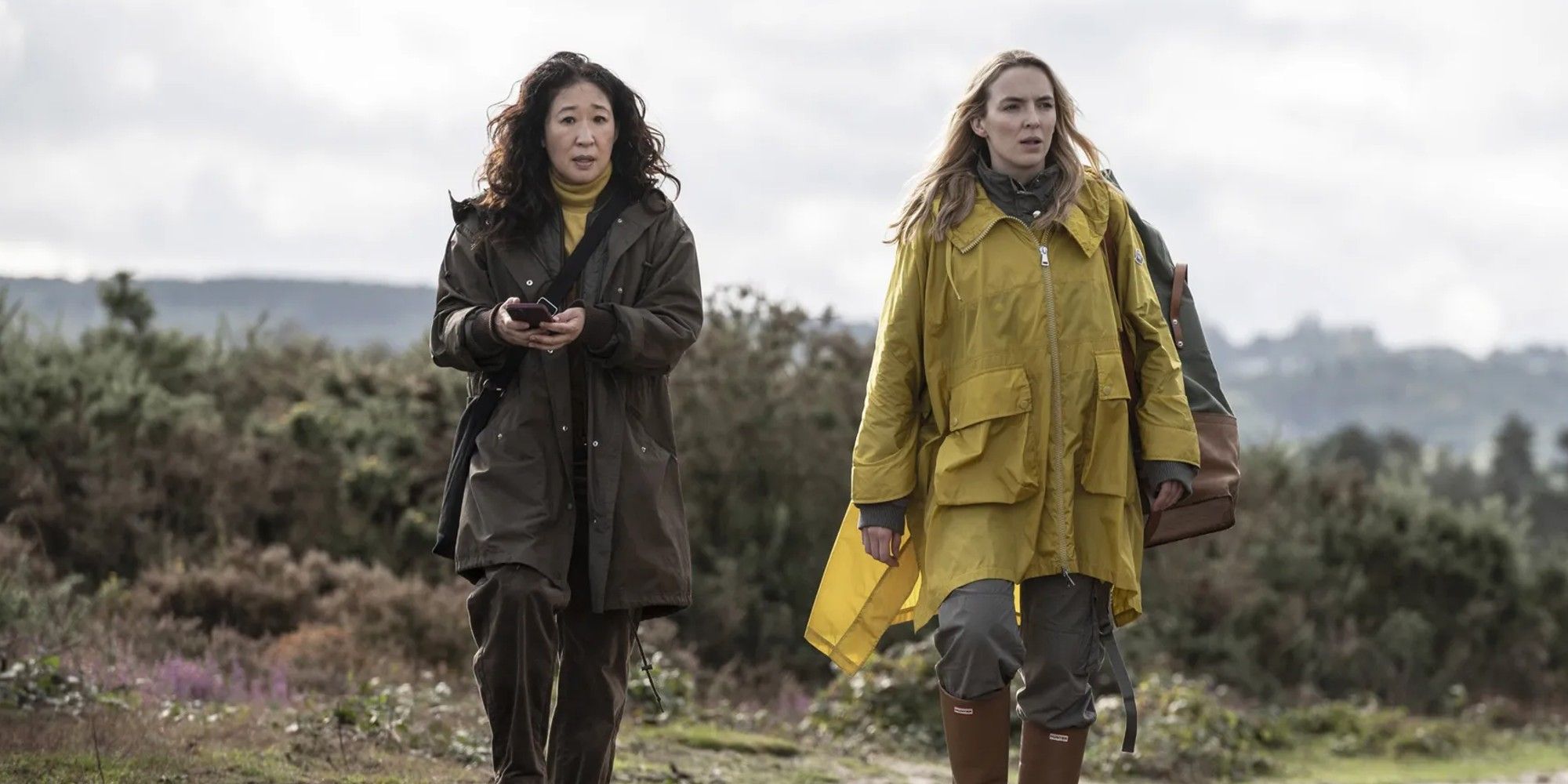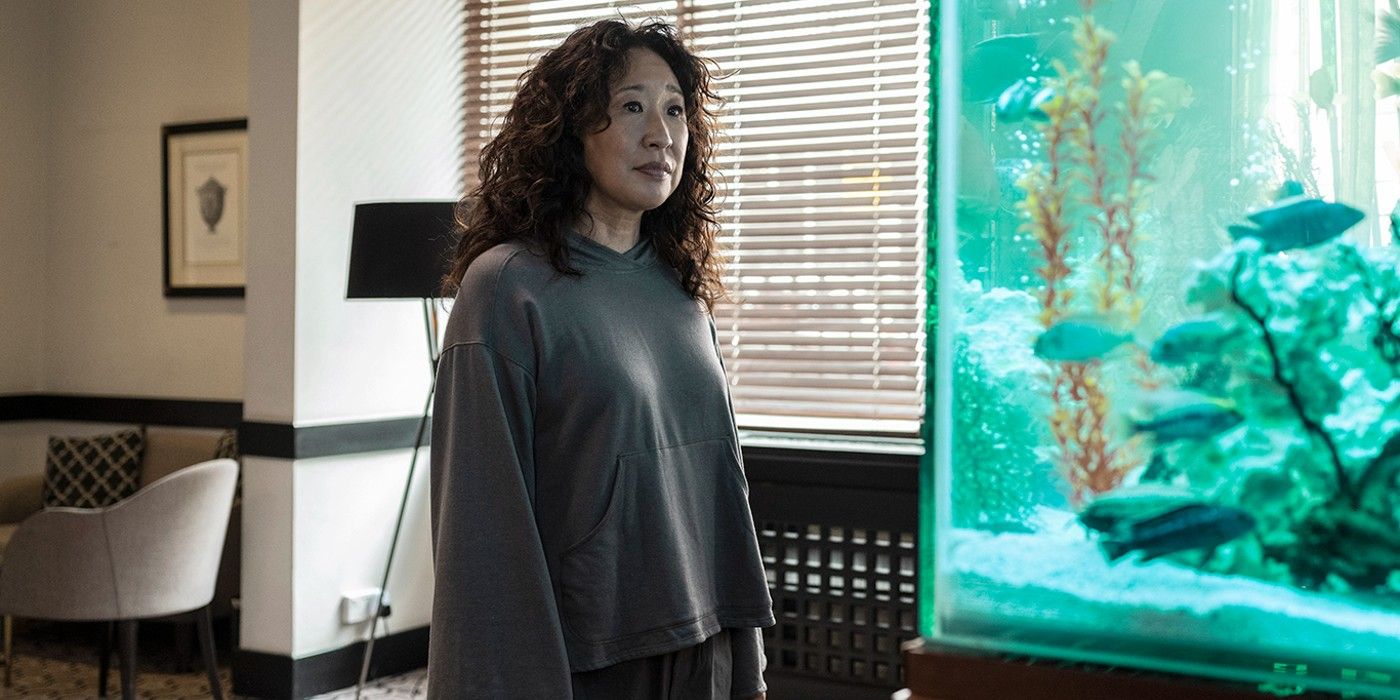
Luke Jennings, the author of the book series on which Killing Eve was based, has criticized the show’s highly controversial season finale. The BBC America spy drama was originally based on Jennings’s 2017 thriller novel Codename Villanelle, although the show’s plotline diverged from the novel’s sequels, Killing Eve: No Tomorrow (published in 2018) and Killing Eve: Die For Me (published in 2020). The final episodes of Killing Eve aired on April 10th, 2022, and unfortunately disappointed some viewers who had been hoping for a happy ending for Eve (Sandra Oh) and Villanelle (Jodie Comer).
The last minutes of the season finale saw Villanelle unexpectedly shot and brutally murdered by an assassin. As Eve and Villanelle plunged into the River Thames, it was revealed that Carolyn (Fiona Shaw) had ordered the hit, likely in order to be let back into MI6. As Villanelle sank, Eve erupted from the water with a guttural scream as “The End” appeared on the screen. This tragic ending ultimately angered a lot of invested viewers, who argue that this is yet another example of the infamous ‘Bury Your Gays’ trope, where LGBTQ+ characters are disproportionally exploited and killed off for shock value.
Codename Villanelle author Jennings is one of these fans, expressing his own disappointment with the ending that season 4 showrunner Laura Neal penned for his characters. Writing in The Guardian, Jennings calls the finale a “bowing to convention” for a series that has universally been praised for going against the grain. He goes on to say that a truly subversive storyline would have been to give Eve and Villanelle their own version of a happy ending, defying the fate of all the queer characters that have suffered on-screen before them. Read the full quote below:
“But the season four ending was a bowing to convention. A punishing of Villanelle and Eve for the bloody, erotically impelled chaos they have caused. A truly subversive storyline would have defied the trope which sees same-sex lovers in TV dramas permitted only the most fleeting of relationships before one of them is killed off (Lexa’s death in The 100, immediately after sleeping with her female love interest for the first time, is another example). How much more darkly satisfying, and true to Killing Eve’s original spirit, for the couple to walk off into the sunset together? Spoiler alert, but that’s how it seemed to me when writing the books.”

Jennings did pen a happy ending for Eve and Villanelle in Killing Eve: Die For Me, where they live a quiet domestic life together in the suburbs of St. Petersburg. With the show’s ending diverging so dramatically from the books, it's understandable why the author is so disappointed. Villanelle’s brutal and shocking death in the finale is made even worse by the happy, explicitly romantic moments that she and Eve got to share just minutes before, furthering the ‘Bury Your Gays’ trope as a symbolic punishment for characters who dare to act on their queer desire.
Lexa’s death in The 100 is one of the most prominent and inflammatory uses of the trope in recent years, so Jennings comparing it with the Killing Eve finale is quite damning. The spy series could have done something exciting and new with such a compelling queer relationship, but instead, the writers threw all that potential away for a deeply unsatisfying tragic ending. It is extremely disappointing to see a previously subversive show like Killing Eve use such a harmful cliché in its final moments, inevitably tarnishing the show’s legacy, at least in Jennings' eyes.
Source: The Guardian
Comments
Post a Comment